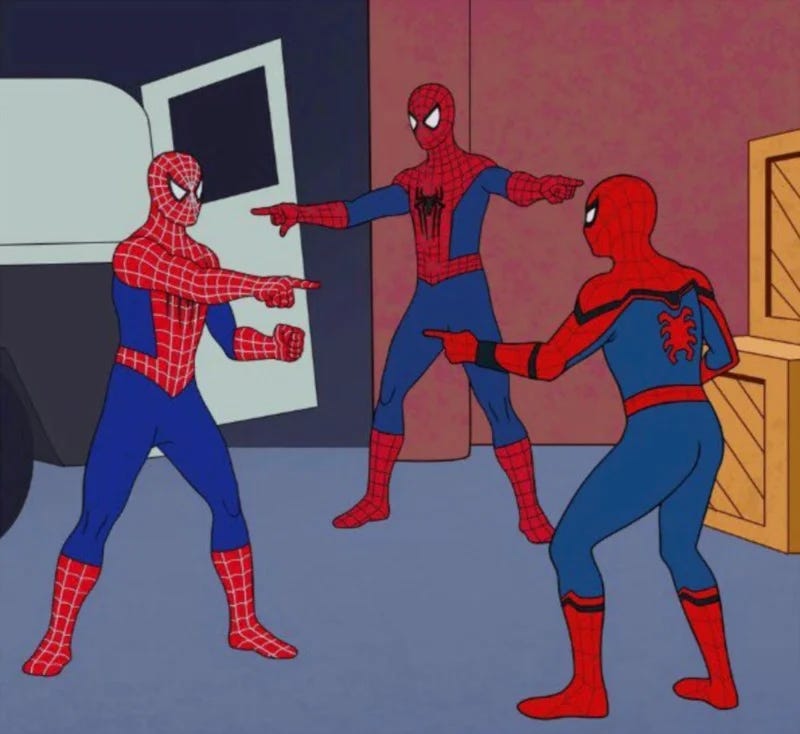Overthinking in grantmaking
I spend a lot of time talking to philanthropists about how to donate, and one trend I have noticed, particularly with smart but new-to-grantmaking folks, is the trend below.
I will term this "gaming" the grantmaking ecosystem. I think there are a couple of misconceptions here about how funding gaps work, similarity among grantmakers, and how to build a good grantmaking ecosystem overall (vs. purely maximizing your own/foundation's per-dollar impact).
Funding gaps:
When a charity applies for a grant, they typically have to put an amount they are asking for. In theory, this is a well-calibrated number based on their current and expected future funding as well as the diminishing returns curve on how much money they can accept at that level of effectiveness. In practice, I think about 3 charities out of 100+ I have spoken to and given grants to do it that way. Most NGOs think of a number that is most likely to get funded by the funder they are applying to—e.g., if I tend to give $200k checks, many of the proposals I will get fall suspiciously close to $200k-$250k asks. This has some real implications for grantmaking, primarily that you should take the amount people ask for on the form less seriously. If someone asks for $200k, it could very well be that $100k will capture much of the impact or that $500k would be spent at basically the exact same level of effectiveness. It also means that if I am in a room with a grantmaker and we both see a pitch for, e.g., a $100k grant and they donate $100k, it rarely means the charity is "full" or that it cannot absorb additional funding at a high level of cost-effectiveness. It really weakens the extra impact you have from waiting and seeing if someone funds the same gap.
Similarity among grantmakers:
Another misconception a lot of grantmakers have is that actors outside of them are typically making radically different decisions for radically different reasons. Often the people who are considering the same opportunities as you are coming to it with similar methods. It is not a surprise that AIM, GiveWell, Founders Pledge, and Giving What We Can end up with similar charities they are excited about—the methods are pretty similar, and thus if I fund something a few months before GW and next grant they fund something before I would have, there is not a big loss for either of us. Funding a dollar to GiveWell is not that bad an outcome and often is implicitly happening for a lot of my poverty grantmaking (even if I try to take it into account). Similarly, in the animal space, the grantmakers I often see trying to game each other broadly want to fund the same projects as each other anyway. The more similar the grantmakers you know about and wait for to make calls before you, the less valuable it is to try to come in after them on funding. And the grantmakers you overlap with the most probably have more in common with you than you think.
Ideal grantmaking ecosystem:
I think sometimes grantmakers get into the habit of only focusing on their individual impact instead of thinking about what is best for the ecosystem. I have seen charities go unfunded because multiple grantmakers assumed others would fill the (mostly contrived) gap.
But of course, at the end of the day, when solving malaria or factory farming, the goal is not "X foundation got slightly more cost-effectiveness"—did the problem get solved? Having a very opportunity-cost-focused attitude can often lead to less and slower overall giving, with a grantee getting vetted and assessed by multiple actors but having to wait for dominos to fall to see who and if they get funded. It can also lead to disincentivization of sharing between grantmakers (e.g., I do not want to share that I funded charity A because then you might not fund them or in general think they are "covered"). I think the ecosystem tends to work better if people do not try to adapt too aggressively for each grant based on who else might fund it.
Overall:
I think in best-run ecosystems, people have high levels of information sharing and relatively low weights on stated room-for-funding estimates. This allows each funder to support the projects they really think are best, not the best one that is unsupported by all other actors. I think at a very broad level it makes sense to consider this (e.g., in picking one cause area or approach over another), but it gets weaker the more granular the grants are and the more similar other grantmakers are to you.




This dynamic is pretty funny because it's the exact opposite as for-profit, where VCs will try to avoid funding something until they know that others are funding it.
Great piece, Joey. I very much agree. There's some broader impact this can have on the culture of the sector that I think is also dangerous. My sense is that high trust, collaboration, and openness to information sharing among funders can lead to a healthier dynamic in the whole ecosystem.